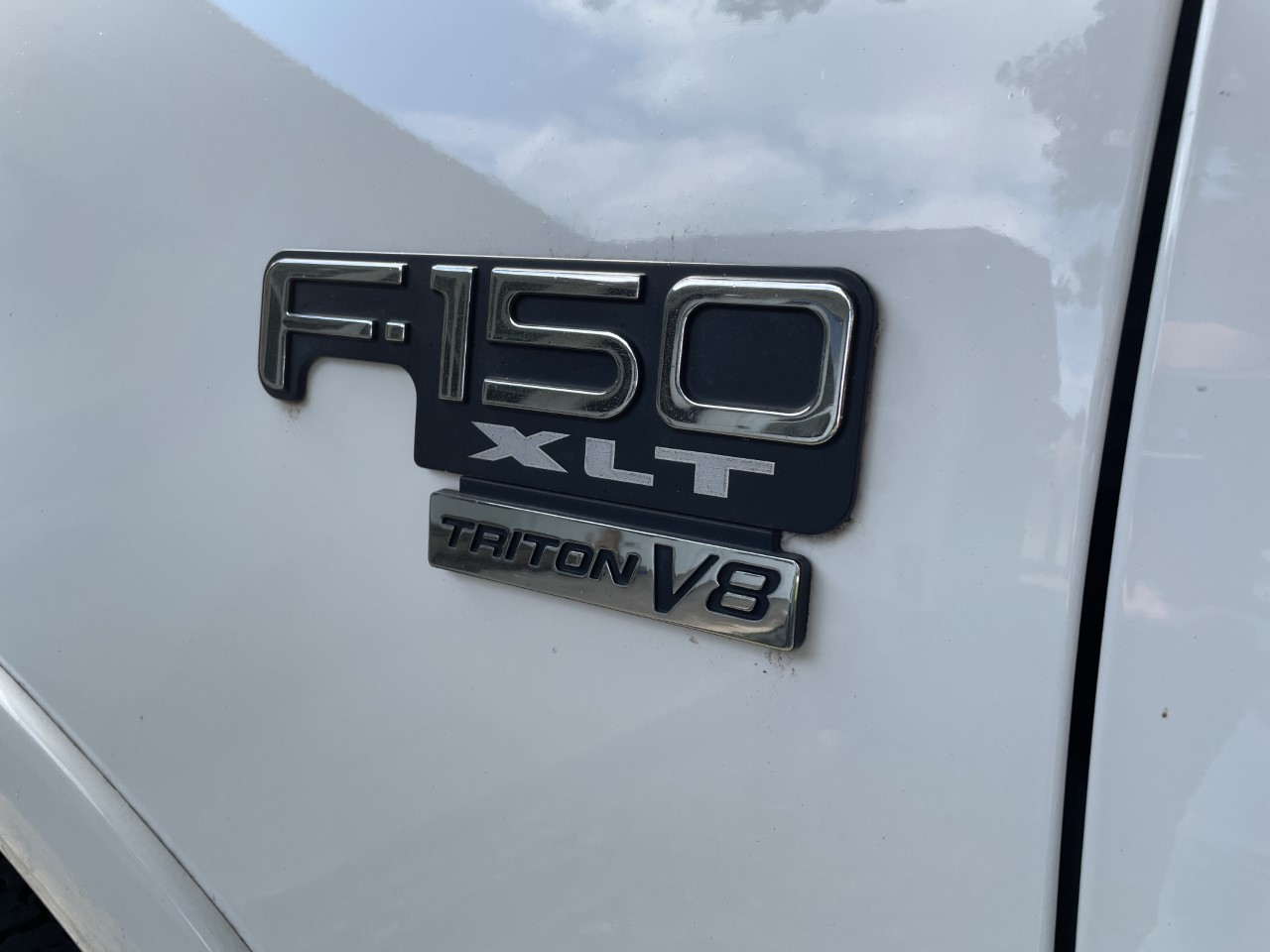What size travel trailer can an F150 pull? If you’re shopping for a new truck with which to haul your camper, you’ve probably asked yourself this question.
As a general rule, a late-model F150 can tow at least 7,000 pounds. However, depending on what kind of tow package and trim level the truck has, it might be able to tow a camper trailer with a loaded weight of over 13,000 pounds. In our guide, we’ll take a closer look at the details to help you choose the right truck for your towing needs.
If you’ve ever attempted to haul a travel trailer, you already know that the towing vehicle needs to be up to the challenge. Otherwise, you’ll risk damaging the vehicle, which could leave you stranded if you’re not careful.
According to my research, the F150 is an excellent choice for towing a smaller camper. As a half-ton truck, it has a payload capacity of about 2,000 pounds. Other trucks in this class include the Chevrolet Silverado 1500, the Toyota Tundra, and the Dodge Ram 1500.
Here’s a brief overview of the details we’ll be covering in this guide:
- What effect does the payload capacity have on the towing process
- How is towing capacity determined?
- What are the different Ford F150 models, and which one is best for towing a camper?
- Can you tow a fifth wheel behind an F150?
- Is there any advantage to a diesel engine when towing a travel trailer? Does Ford offer an F150 with a diesel engine?
- Should your F150 have 4-wheel drive?
Ford F150 Models
As we’ve mentioned, F150 is an umbrella term, referring to several slightly different half-ton pickup trucks by Ford. For example, in 2019, Ford offered seven trim versions and four engine variations. For your convenience, we’ve outlined their differences in the towing capacity chart below.
Towing Capacity Chart
| Trim | Engine | Towing Capacity | Payload |
| LX | 3L TI-VCT V6 | 7,700 lbs | 1,990 lbs |
| XLT | 3L TI-VCT V6 | 7,700 lbs | 1,990 lbs |
| Lariat | 2.7L EcoBoost V6 | 9,000 lbs | 2,470 lbs |
| Raptor | High-Output 3.5L V6 EcoBoost | 13,200 lbs | 3,230 lbs |
| Limited | High-Output 3.5L V6 EcoBoost | 13,200 lbs | 3,230 lbs |
| King Ranch | 5.0L TI-VCT V8 | 11,600 lbs | 3,270 lbs |
| Platinum | 5.0L TI-VCT V8 | 11,600 lbs | 3,270 lbs |
How Payload Relates To Towing Capacity
The term payload refers to the weight capacity of the truck’s box, as well as the suspension. It’s closely related to tongue weight, which is the amount of pressure that’s put on the vehicle by the towing hitch.
When it comes to tongue weight, the weight of the trailer is only one determining factor. It’s also influenced by the way that weight is distributed. If most of the weight is supported by the hitch, then the tongue weight will be that much higher as a result.
While a high tongue weight makes towing more difficult, it also improves stability and decreases trailer sway. If the trailer is back-heavy, for example, or if the entire load is too light, it might bounce around when the vehicle is traveling at high speeds.
Conversely, when too much weight is placed on the tongue, it might split apart, which is even more dangerous. That’s why vehicle manufacturers recommend keeping the tongue weight at 10 to 15 percent of the total loaded trailer weight.
How Towing Capacity Is Determined
There are several factors that come into play when determining the towing capacity of a truck or SUV. In this section, we’ll cover the most prevalent ones.
Horsepower
Horsepower is what propels the vehicle forward. The more horsepower your engine has, the easier it will be for you to accelerate when towing a heavy load. HP levels on an F150 range from 250 to 450, with the PowerBoost hybrid powertrain delivering the highest amounts to the 2021 models.
For more information on the various F150 models, see our Towing Capacity Chart below.
Axle Ratio
How much weight a vehicle can tow depends on the amount of torque that it’s capable of generating. Torque is the term given to the energy that allows the vehicle’s wheels to spin, thereby propelling them forward. When the vehicle is moving at high speeds, it doesn’t rely on the torque anymore, since it’s already in motion. Torque is only required when the vehicle needs to move from a standstill position.
What does this have to do with the axle ratio? Put simply, the axle is the component that determines how many rotations the tires will get out of the energy provided. When the wheels spin more slowly, the towing vehicle will have more power, but it will use up more energy with each revolution. If they spin quickly, they’ll use less energy, but they won’t be capable of towing heavy loads. This means that a lower axle ratio will help conserve fuel when you pull a smaller load, and a high axle ratio is preferred for heavy loads.
Length And Weight
Before making a purchase, check the gross vehicle weight rating (GVWR) and gross combined weight rating (GCWR) for the F-150. If you already know what type of travel trailer you want to pull, these numbers will help you pick the right truck.
Obviously, if your camper is heavier than the F150 can tow, you’ll risk all sorts of problems, from body damage to engine breakdown. However, it’s also a bad idea to hook a small camper trailer up to an enormous truck. The lightweight trailer will be like a kite on the end of a string, bouncing and swaying behind the vehicle.
Towing Package
Many pickup trucks are equipped with a trailer hitch, but that doesn’t mean they have a towing package. How much weight the F150 can tow depends largely on the components of this package, and the towing hitch represents only one of them.
A good towing package will feature extra wiring that allows you to connect the camper trailer to the vehicle’s lighting system. That way, the motorists behind you will be able to see when you’re braking or signaling to turn.
The brakes and suspension systems should also be upgraded for a heavy-duty towing package. This may include stronger shocks, sturdier springs, or larger brake discs or drums. Also, since the transmission bears the brunt of the towing process, the manufacturers will probably include components that speed the cooling process, such as a heat exchanger in the radiator.
Can You Tow A Fifth Wheel Behind An F150?
Technically, it’s possible to use an F150 to haul a fifth wheel camper, as long as the truck is equipped with the requisite gooseneck hitch. However, we wouldn’t recommend it in most cases.
Why? Because fifth wheels are typically quite large and bulky, meaning they require a heavy-duty towing vehicle. The F150 is too small to give you full control over the trailer, which could lead to an accident. What’s more, if the camper is too heavy, you’ll run the risk of an engine breakdown. If you want to stick with a Ford truck, check out the F250 or F350 models instead.
One caveat: If you just need to move your fifth wheel to another spot on the property, the F150 should be up to the task. For highway travel, however, it’s better to go with a larger truck.
About Diesel Engines
In terms of energy efficiency, diesel engines win the day. They offer more torque and greater power overall than gas engines, which is why they’re so popular when it comes to towing oversized loads.
That said, the difference in power and energy consumption is minimal when you’re talking about a half-ton truck like the F150. The savings are offset even further by the fact that diesel models cost more than their gasoline-fueled counterparts. Unless you’re planning to pull a travel trailer around on a daily basis, it would take you a long time to recoup your initial investment.
What’s more, it’s difficult to find a Ford F150 with a diesel engine. As we mentioned, this type of engine is more prevalent in trucks that are equipped to handle heavier loads. There are a few of them out there, but it’s probably not worth the effort it would take to find one.
Does Four-Wheel Drive Make A Difference?
Most trim packages for the F150 offer four-wheel drive. This boosts the price tag significantly, but does it have any effect on the towing experience?
In our opinion, it won’t make much difference unless you’ll be towing the rig in snowy or icy conditions. It’s also a good idea to enlist the aid of four-wheel drive if you’re traveling on dirt roads that consist mostly of loose gravel. If you stick to paved roads and use your travel trailer only in the summer months, then a rear-wheel drive package should suit your needs just fine.
In Conclusion
How much weight the F150 can tow will depend upon the trim version and engine variation you buy. By doing a little bit of research, you should be able to find a version of the F150 that suits your needs.
Good luck, and happy camping!
Checkout our article on: What Size Truck Do I Need To Pull A Travel Trailer?

